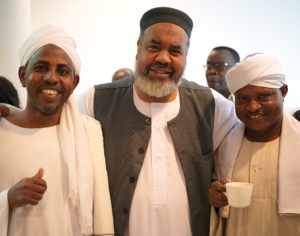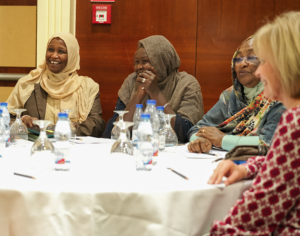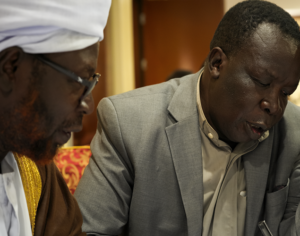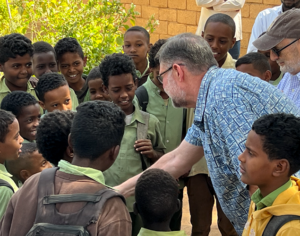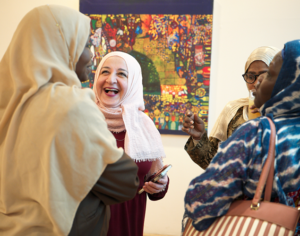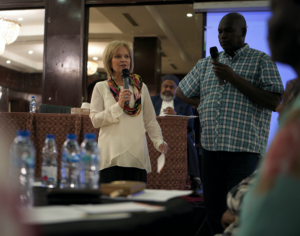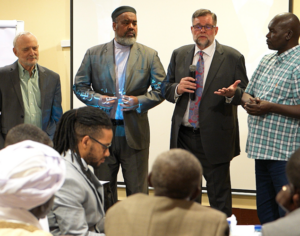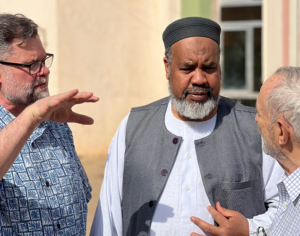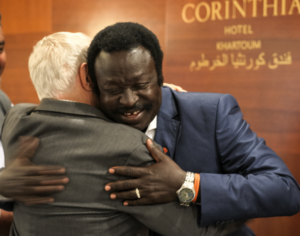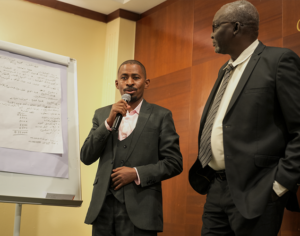Sudan is going through a very difficult and challenging time, politically and socially. The MFNN Multi-Faith Retreat set out to address some of the polarization issues in Sudan, potentially even giving the reconciling effort another platform and opportunity for people to work together.
What if faith leaders from multiple belief systems from different global regions came together under one roof to focus on religious freedom for all? What if respectful deliberations led to the removal of collaboration barriers? What if female leaders having a seat at the table led to more engaged and serviced-focused communities?
“This was a unique experience, and one of the most important aspects is that the areas we have chosen, the cities we have chosen, will set an example so that in the future, we can spread this and increase the social fabric all over Sudan,” said Imam Magid, whose father was the Grand Mufti in Sudan.
Tensions and Challenges
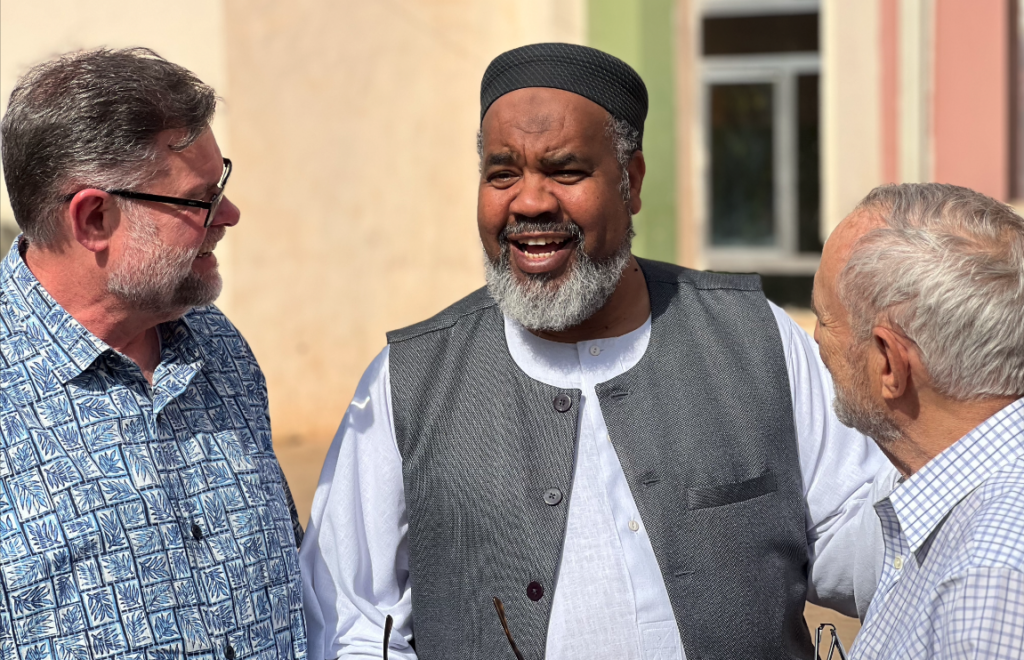 While many individuals in Sudan were extremely interested in the project, the MFNN team quickly learned about the various tensions and challenges they would face—both intra-faith and between faiths. In 2019 and 2021, Sudan faced a series of coups. This, along with the sanctions imposed, created an incredibly difficult environment for the Sudanese people. Understandably, there was a strong sense of distrust among everyone with whom the team met. While fully recognizing Sudan would be a challenge, it was more difficult than anyone expected. Even getting a visa from the Embassy was nearly impossible. “In September, we had to go to the Islamabad Sudan Embassy to get our visa the day before we were to arrive. In planning the February trip, we did not receive our visa until the week before, despite constant communication and requests both in Washington DC and in Khartoum,” recounted a few team members. However, hurdles were crossed and the Retreat Preparation Trip was successful, thereby setting up the final dates for the Retreat to take place February 7-9, 2023 in Khartoum.
While many individuals in Sudan were extremely interested in the project, the MFNN team quickly learned about the various tensions and challenges they would face—both intra-faith and between faiths. In 2019 and 2021, Sudan faced a series of coups. This, along with the sanctions imposed, created an incredibly difficult environment for the Sudanese people. Understandably, there was a strong sense of distrust among everyone with whom the team met. While fully recognizing Sudan would be a challenge, it was more difficult than anyone expected. Even getting a visa from the Embassy was nearly impossible. “In September, we had to go to the Islamabad Sudan Embassy to get our visa the day before we were to arrive. In planning the February trip, we did not receive our visa until the week before, despite constant communication and requests both in Washington DC and in Khartoum,” recounted a few team members. However, hurdles were crossed and the Retreat Preparation Trip was successful, thereby setting up the final dates for the Retreat to take place February 7-9, 2023 in Khartoum.
MFNN builds mutual trust and respect among faith leaders through civic engagement, authentic relationships, and honest dialogue leading to resilient, compassionate, and flourishing communities — communities that are more interconnected and resilient to hate, violence, and polarization.
Diversity in Action and Attendance
A pastor and an imam from the US joined the MFNN team led by Pastor Bob Roberts, Imam Mohamed Magid, and Rabbi David Saperstein to lead the cleric retreat. There were 26 clerics in attendance from Khartoum and 5 outlying provinces, including the Darfur region. They came in pairs, with one pastor and one imam from each region. They were joined by 20 female congregational leaders from Khartoum. This was the first time a track for women was intentionally included in these retreats.
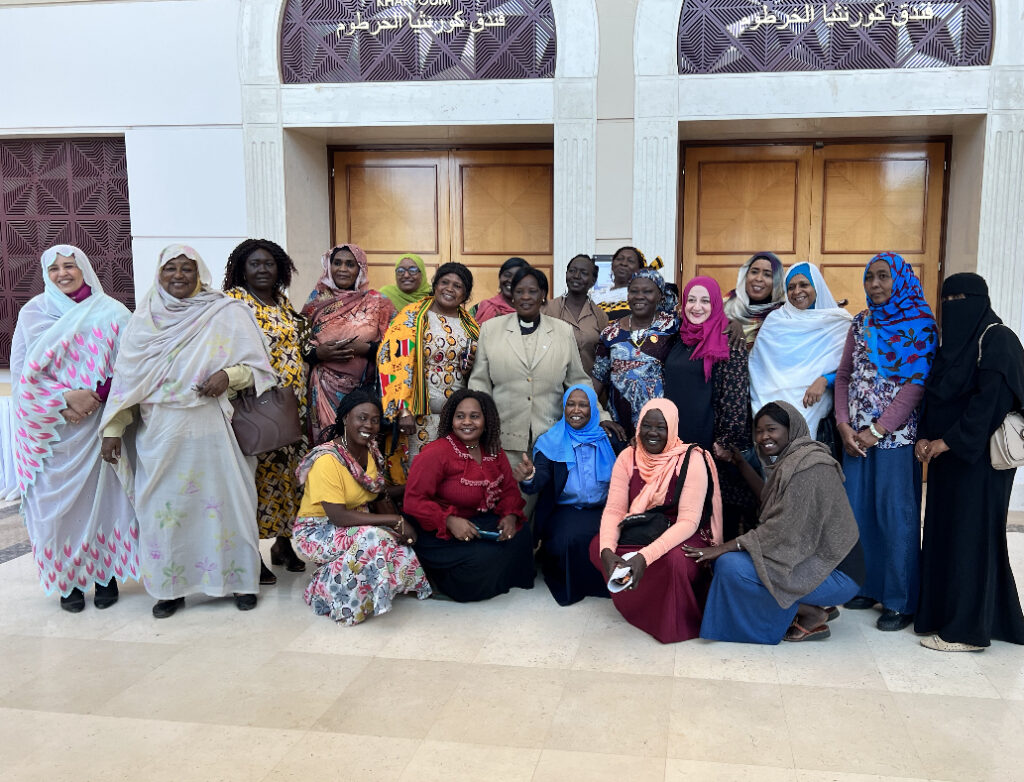 One of many key takeaways from the conference is that women must be included moving forward. Attendees learned that the female congregational leaders provided fresh energy and engagement that also served to motivate the male clergy who were present. The women had more concrete ideas to serve the more disadvantaged in their communities.
One of many key takeaways from the conference is that women must be included moving forward. Attendees learned that the female congregational leaders provided fresh energy and engagement that also served to motivate the male clergy who were present. The women had more concrete ideas to serve the more disadvantaged in their communities.
As one female attendee recounted, “The most unique thing about this workshop in Sudan is women participation with both Muslim and Christian women. They have done an amazing job of committing themselves to working together. Many weeks after the retreat, I am still getting all these messages from the WhatsApp group. The presence of key women leaders was so crucial, as they connected well with those women. And I think we should repeat that in other events.”
Collectively Changing Perceptions
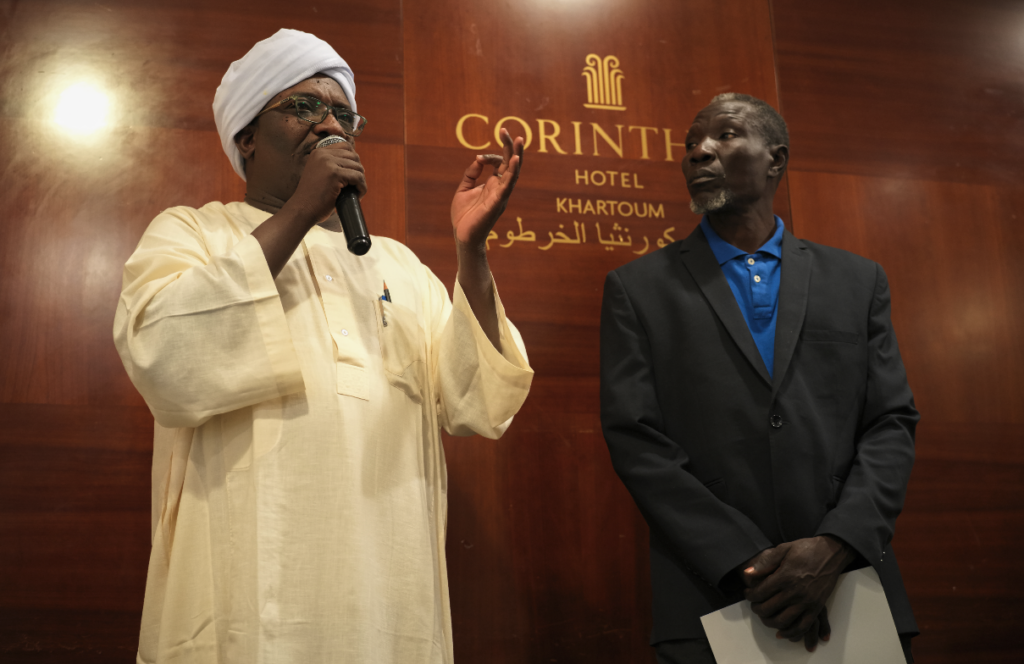 The multi-faith retreat was an engaging event which led to multiple findings and plans for both immediate and future action. The clerics and the women in attendance responded well and remained highly committed throughout the entire three days. They spent time getting to know one another rather than taking previous preconceived notions into their discussions, further proving that together, in unity, individuals within communities have far greater impact than they do alone. Coming together and actively listening to one another allowed for the breaking down of collaboration barriers, ultimately paving the way for the creation of specific, measurable action plans to engage in collaborative activities in their communities going forward. Niki Roberts, who co-led the women’s group, said afterwards, “The Sudanese people are amazing, and it was so encouraging and moving to see the different faith leaders working together to build bridges of peace.”
The multi-faith retreat was an engaging event which led to multiple findings and plans for both immediate and future action. The clerics and the women in attendance responded well and remained highly committed throughout the entire three days. They spent time getting to know one another rather than taking previous preconceived notions into their discussions, further proving that together, in unity, individuals within communities have far greater impact than they do alone. Coming together and actively listening to one another allowed for the breaking down of collaboration barriers, ultimately paving the way for the creation of specific, measurable action plans to engage in collaborative activities in their communities going forward. Niki Roberts, who co-led the women’s group, said afterwards, “The Sudanese people are amazing, and it was so encouraging and moving to see the different faith leaders working together to build bridges of peace.”
The Sudanese people are amazing, and it was so encouraging and moving to see the different faith leaders working together to build bridges of peace.– Niki Roberts
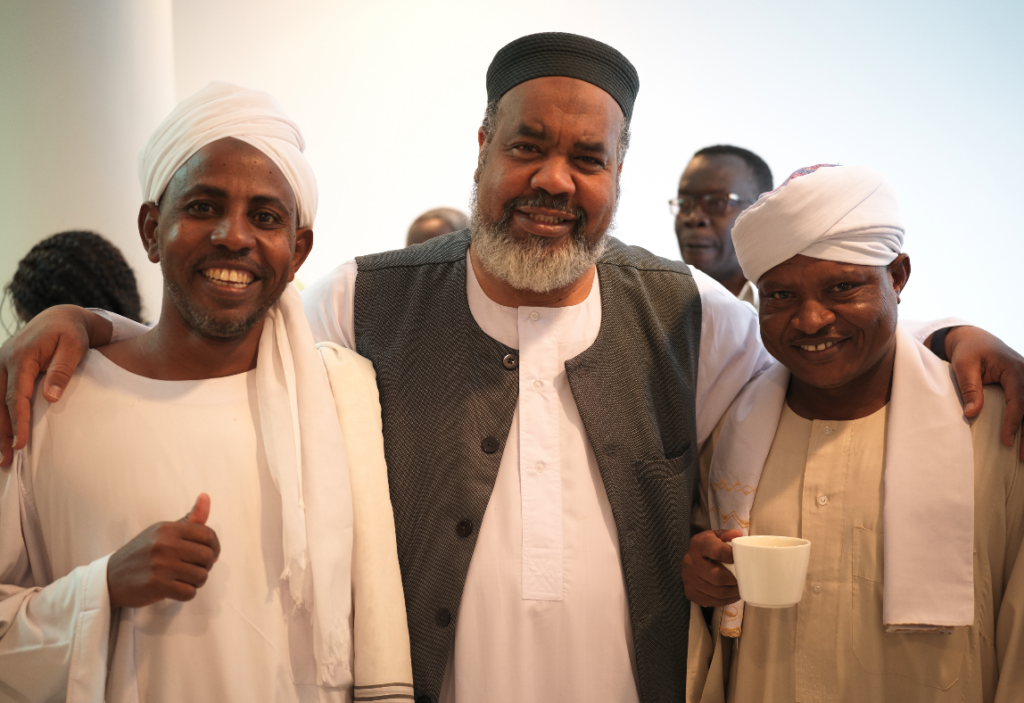 One imam in attendance had his views completely upended. On the second day of the retreat, he vocally complained about the activities the attendees were engaging in, believing it was problematic to bring up various challenges, biases, and disagreements between the religious communities. However, on the final day of the retreat, he returned to tell the leaders that his mind had been changed, and that this was an excellent retreat. He, along with many other attendees, was motivated and encouraged.
One imam in attendance had his views completely upended. On the second day of the retreat, he vocally complained about the activities the attendees were engaging in, believing it was problematic to bring up various challenges, biases, and disagreements between the religious communities. However, on the final day of the retreat, he returned to tell the leaders that his mind had been changed, and that this was an excellent retreat. He, along with many other attendees, was motivated and encouraged.
“I believe this was a breakthrough. Participants have said they have not experienced any workshop like this. This is a very practical and engaging retreat, and it made people vulnerable in ways that allowed them to have safety as they spoke about the challenges they face as Christians in Sudan. And I think it is the first time for the Muslim leaders to hear those challenges directly from the Christians in Sudan—in the same room. And I do believe that the outcome of the workshop was amazing … the imams and the pastors committing themselves to work together from this point forward.” – Imam Magid
